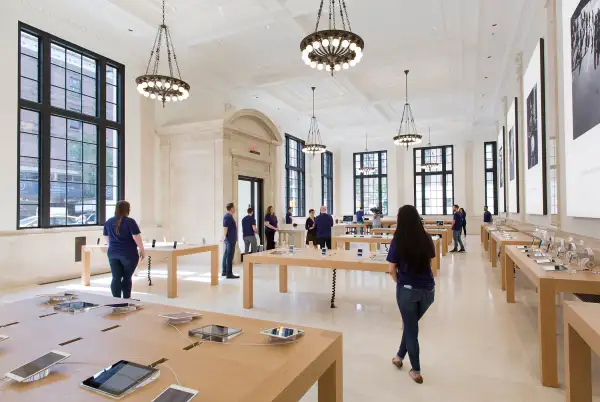What to Make of Apple's Stock Drop
Money is not a client of any investment adviser featured on this page. The information provided on this page is for educational purposes only and is not intended as investment advice. Money does not offer advisory services.

If you bought shares of Apple in recent months, you might be feeling pretty frustrated right now: After a stellar rise in the beginning half of the year, Apple's share price this month dropped below $120 for the first time since February.
The price dive began after the company's third quarter earnings report showed iPhone sales of 47.5 million, missing analysts' expectations for 48.8 million. While that might seem like a minor miss for a business sitting on more than $200 billion in cash, it shows just how high hopes have gotten for what's already the world's most valuable company.
"Investors expect Apple to keep finding new ways to move the needle, but that needle keeps getting bigger and harder to move," says Becker Capital Management president Pat Becker Jr., who invests in Apple through Becker's value equity fund.
Whether you see this as simply a "correction" or an overreaction depends in part on your confidence in Apple's ability to keep hitting home runs out of the park. The company's most recent home run is still the iPhone, which generated 63% of sales last quarter. So two big questions for Apple are how well the phone can keep selling and what—if anything—can succeed it as Apple's next big thing.
To the first question, while some reports show Apple's smartphone market share increasing in the U.S., others actually suggest Google's Android devices might be gaining on the iPhone domestically. And even though iPhone demand is growing in Europe, there are fears that a devalued Chinese yuan could erode consumer demand for Apple's phone in China.
Then again, revenue from the iPhone's loyal customer base seems like an incredibly reliable source of cash flow, as investor Carl Icahn has said: Every two years, like clockwork so far, millions of people upgrade their phones. And only 27% of current iPhone users have upgraded to an iPhone 6, which leaves plenty of room for sales success this coming year, says Becker.
But the question of what will be the "next iPhone" is trickier. Sales of the Apple Watch and iPad have been disappointing, at least relative to the hype accompanying them. And other new offerings, like the streaming service Apple Music, haven't yet distinguished themselves from competitors (like Spotify).
Still, any bearishness about Apple today must be put in perspective: After all, the Cupertino, California-based company has had a stellar year—even after the recent correction—with a share price 20% higher than it was a year ago.
"Nobody should be buying Apple expecting it to double in the next year," says Villere Balanced Fund co-portfolio manager Lamar Villere, who owns the stock in his fund. "But you're also not taking a lot of risk."
"Not taking a lot of risk" seems like a strange way to describe investing in a tech business. But Apple's evolution into a mature company means investors can now count on steady dividends and share buybacks, Villere says, and steady income might be the company's biggest selling point for investors today. As long as the iPhone maintains its current popularity, the company doesn't truly need a game-changer—at least not just yet.
If there were a game-changer going forward, one possibility might be payment services, says Becker, if the company can expand the base of consumers using Apple Pay.
"If they can grab transaction revenue, that's the holy grail," he says. "We don't think that's priced into the stock right now."
Apple's P/E ratio, a measure of how high prices are relative to earnings, is only about 13 right now. For some perspective, Google—which just announced a massive restructuring—is trading for about 31 times earnings.
